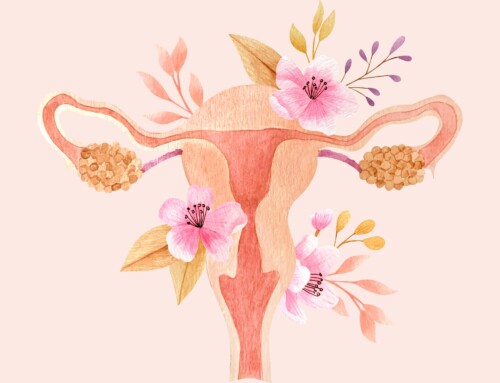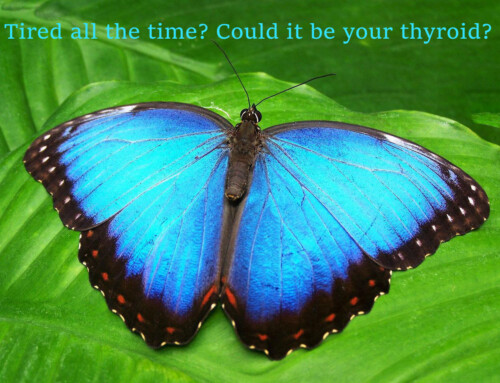I am often asked my my female clients if there is anything that I can recommend to help with their hair, in particular for hair loss, dry, breaking or lacklustre hair. Most of these requests come during the menopausal transition and, although this is partly due to decreasing levels of oestrogen and progesterone, there are also a few other things to consider.
Nutrition
Healthy hair is dependent upon a plentiful supply of nutrients including protein, essential fatty acids (fish, nuts and seeds), iron, folate, B vitamins as well as Vitamins A, C and D.
An optimal hair growth potential is considered to exist when specific parameters for biochemical variables are operating. These include red blood cell and serum folate concentrations within the normal range, serum vitamin B12 levels between 300 and 1000 ng/L, hemoglobin levels greater than 13.0 g/dL, and serum ferritin concentrations of 70 ng/mL or greater. (Rushdon, DH, 1993)
In view of this, I recommend that my menopausal clients with hair issues ask their Doctor for a blood test including a full blood count, folate, Vitamin B12, Vitamin D and ferritin (the storage form of iron). I often find that women with hair loss have ferritin levels considerably lower than 70ng/mL and Vitamin B12 is also frequently at the lower end of the recommended range.
Thyroid
The hormones produced by the thyroid gland influence the rate of growth as well as the condition of our hair. Both hyperthyroidism (overactive thyroid) and hypothyroidism (underactive thyroid) may result in hair increased hair loss or hair that breaks easily. The hair loss resulting from thyroid imbalances tends to occur all over the head rather than in particular areas and it usually happens gradually. In hypothyroidism a thinning of the outer third of the eyebrows may also occur.
In hyperthyroidism, the metabolic rate is increased so symptoms may include unintended weight loss, tachycardia (racing heart), loose stools, tiredness, weakness, feeling hot, nervous, anxious and wired, which of course makes it difficult to sleep.
In hypothyroidism, the metabolic rate of all cells is slower so it is more likely to manifest as weight gain, constipation, difficulty concentrating, depression, muscle pain, low libido, feeling cold (especially hands and feet), dry skin and fluid retention.
Many of the symptoms of thyroid imbalances are similar to those that may be experienced during the menopause. The function of the thyroid is also more prone to go off balance during times of hormonal change. Therefore, it makes sense for women with hair loss, dry or breaking hair, to have their thyroid checked. This is particularly important if any of the other symptoms of thyroid imbalance are present.
Ideally a thyroid blood test should include TSH, free T3, free T4 as well as anti-TPO and anti-thyroglobulin autoantibodies. I would be looking for optimum ranges of thyroid hormones within the given ranges (which are very wide). It is important for the antibodies to be included to ascertain whether any thyroid imbalance is of autoimmune origin.
Sub optimal nutrient status also adversely effects thyroid function, for example, low iron which is also linked to hair loss.
Stress
It’s the “S” word again. It crops up in most discussions about health because, our response to long term stress, can cause such widespread disruption and dis-ease within the body and mind. Ongoing stress often leads to elevated cortisol levels which can damage the hair follicle. Furthermore, chronic excess cortisol levels may result in lower progesterone levels which also contributes to hair loss. Incidentally, long term high levels of cortisol are also involved in weight gain around the middle which often occurs in the menopausal period.
Biochemic Tissue Salts
The twelve tissue salts, cell salts or biochemic remedies as they are sometimes called, were developed by Dr W. H. Schuessler who was a renowned Doctor of medicine, Homeopath, physiological chemist and a physicist . They are made from twelve mineral salts which our cells rely on to function properly. They are prepared homeopathically in low potencies but differ a little from Homeopathic remedies of higher potencies in that they work more on a nutritional level. I like to think of them as a bridge between homeopathy and nutrition – they are feeding our cells tiny doses of essential minerals. If one or more of these vital mineral salts are lacking, it is going to show up somewhere in the body as symptoms or signs, such as weak hair and nails. One of the beautiful things about tissue salts is that is is really easy and safe to self prescribe them.
Silica Tissue Salts:
Silica is a component of hair, skin and nails so Silica tissue salts (6x or 9x) are the number one remedy to think of for dry, brittle, weak hair. I can personally testify to this. For a variety of reasons, my hair had become dry, weak and prone to breaking over the last six months. It had also stopped growing which is really unusual for me. I took Silica tissue salts 2-3 times daily over the course of a couple of months and the condition of my hair has considerably improved. It is even growing again! If our body is lacking Silica at a cellular level, this is going to show up in the condition of our hair, skin or nails.
Homeopathic Remedies
We have a number of homeopathic remedies which may be helpful for women with hair loss, brittle and dry hair during the menopausal transition. The best remedy would be selected depending on the specifics of the hair loss as well as other menopausal symptoms, emotional state and health history. However, I would like to mention one particular remedy here as it stands out as a remedy for menopausal hair loss, as well as having the potential to relieve many other menopausal symptoms. The remedy is Sepia and, if it resonates with you, it’s worth trying. A typical dose might be Sepia 30c twice daily for three days and then twice a week for about 2-3 weeks.
Sepia
Sepia is a remedy for falling out of the hair during the menopausal period. Women needing Sepia tend to feel tired, worn out, dragged down, irritable, anxious and tearful. The irritability is likely to be taken out on those closest to them and their sex drive is often virtually non existent, especially during the menopausal period. There may also be vaginal dryness making sex painful. A woman needing Sepia may experience flushes of heat with anxiety, weakness and a faint feeling. A major indication for Sepia is that, despite feeling tired, a woman needing this remedy will feel considerably enlivened after vigorous exercise. The intense exercise relieves the stagnation that is present in the body and gives her a new lease of life.
Whilst we are on the subject of hair, you might like to read about Hair Tissue Mineral Analysis here
References:
Dr. W. H. Scheussler, Biochemic Handbook, 1998 New Era Laboratories, Plantscan Publicatons
Rushdon, DH, Management of Hair Loss in Women, Dermatol Clin. 1993 Jan;11(1):47-53.




